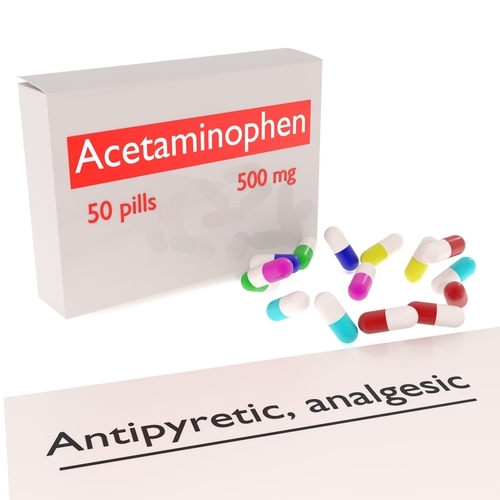Acetaminophen lowers acute kidney injury risk in children post cardiac surgery
Vanderbilt University Medical Center Research News May 23, 2018

Children who underwent cardiac surgery were less likely to develop acute kidney injury if they had been treated with acetaminophen in the first 48 hours after their procedures, according to a Vanderbilt study just published in JAMA Pediatrics.
The finding is significant because acute kidney injury is a very common problem after such surgeries, and there previously have not been any medications to treat or prevent it, said Sara Van Driest, MD, PhD, assistant professor of medicine and pediatrics, one of the study’s authors. At least 5% of all patients who are admitted to the pediatric floor and at least 25% of those who require intensive care develop acute kidney injury. Among children who have cardiac surgery, about half develop acute kidney injury.
“This is important because those patients who have acute kidney injury are known to have increases in mortality during that hospital stay, and in morbidity, meaning that they have worse kidney function in the months and years after,” Van Driest said. “They also have longer stays in the hospital, which is hard on patients and families.”
The study was informed by years of research at Vanderbilt to understand the pathways that acetaminophen targets. Researchers have found that the drug can prevent the damage that is done by free hemoglobin, one of the byproducts of the breaking up of red blood cells during cardiac bypass, Van Driest said. That prior research provided a hypothesis that could be tested—that acetaminophen could protect against acute kidney injury.
The retrospective observational study found the lower rate of acute kidney injury in 999 pediatric surgery patients using acetaminophen, first at Vanderbilt and then at Duke University.
“We found that the more acetaminophen that they got, the less likely they were to have acute kidney injury,” Van Driest said. “Even after we took measures to adjust for how sick the patients were, how long their cardiac surgery was, and how many risk factors they had for acute kidney injury, the protective effect of acetaminophen remained.”
Van Driest said the next step is potentially a randomized trial to validate the findings. She noted that acetaminophen poses little risk, and doctors understand what doses to give to avoid toxicity. Lorraine Ware, MD, professor of medicine, pathology, microbiology, and immunology, and another author of the study, noted that the findings might also lead to randomized trials in other disease states that cause release of free hemoglobin, such as sickle cell disease and sepsis.
Many Vanderbilt departments collaborated on the study—Pediatrics, Medicine, Biostatistics, Biomedical Informatics, Pharmacology and Pathology, Microbiology, and Immunology. In addition, the Cardiovascular Perfusion Technology Program and the Department of Pediatrics at the Duke University School of Medicine participated.
“I think the fact that we’re able to do this study showcases several strengths of the institution,” Van Driest said. “One is our ability to extract data out of electronic health records, because of the great bioinformatics support and health IT structure that we have here. This project would never have started without conversations that were happening between Medicine and Pediatrics and with Nephrology, Cardiology, Critical Care, and myself. And the role of Biostatistics in developing a robust methodology that was reproducible at another site was also incredibly important.”
-
Exclusive Write-ups & Webinars by KOLs
-
Daily Quiz by specialty
-
Paid Market Research Surveys
-
Case discussions, News & Journals' summaries